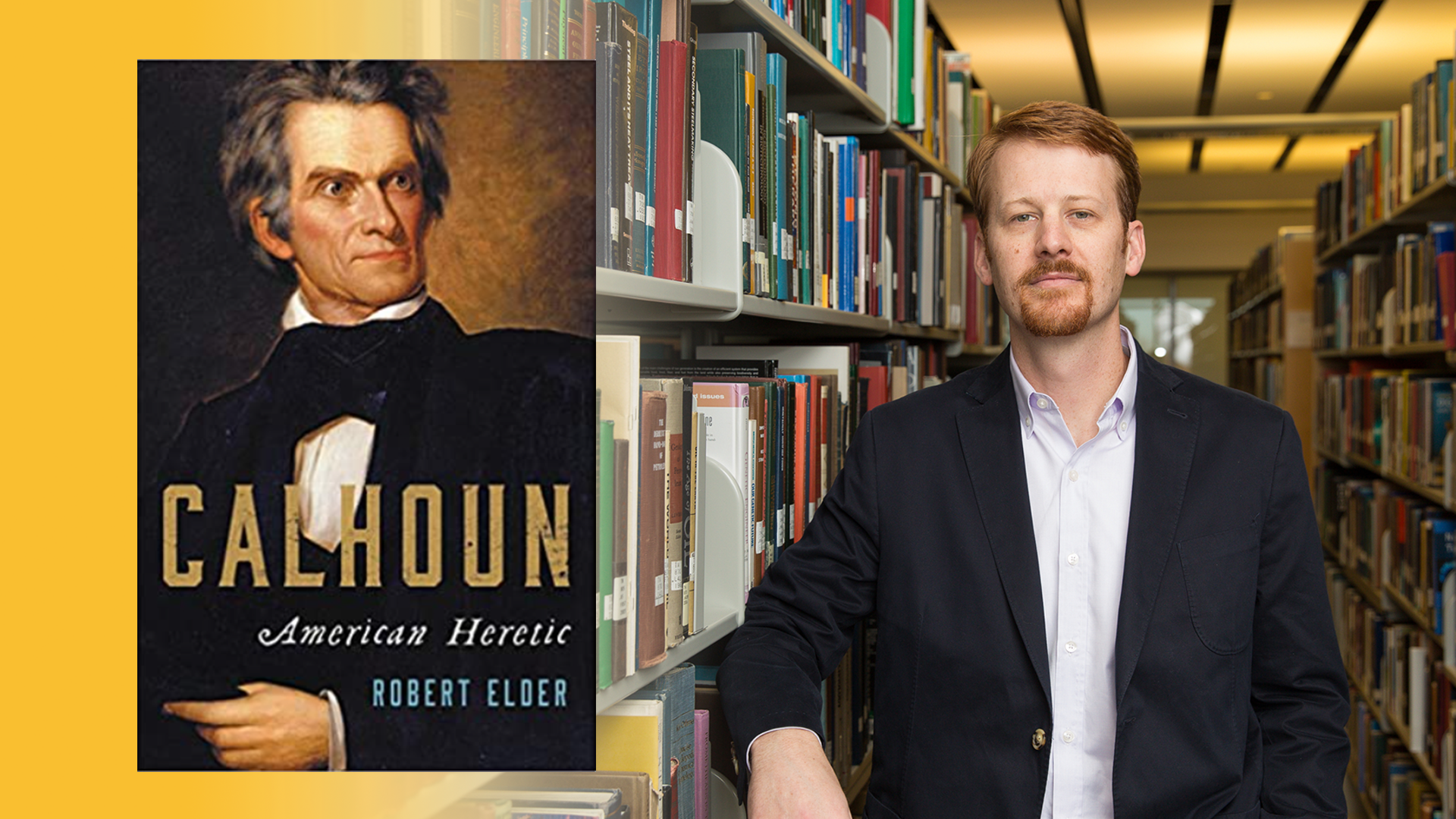Baylor prof’s book makes New York Times’ recommended reading list

Each week, The New York Times publishes a recommended reading list, featuring books of all shapes, sizes and subjects. This week’s list is quite diverse topic-wise: a romantic comedy, a memoir on race — and a biography written by one of our very own faculty members.
Calhoun: American Heretic, written by Baylor history professor Robert Elder, examines the life and thoughts of prominent American politician (and adamant defender of slavery) John C. Calhoun — who has recently resurfaced in national discourse more than a century and a half after his death. In its review of the book, The New York Times notes that Dr. Elder’s work “not only looks at [Calhoun’s] zealous support of slavery but also at his theoretical defense of minorities against tyrannical democratic majorities, an idea with a surprisingly nuanced afterlife in American political culture.”
Elder came to Baylor in 2018 after four years at Valparaiso. Throughout his career, he has become an expert on the cultural, intellectual and religious history of the American South in the 19th century. He’d tossed around the thought of writing about Calhoun for a few years, but was especially moved to start drafting after the horrific 2015 shooting at Mother Emanuel AME Church in Charleston. Elder recalls there were cries for a statue of Calhoun to be taken down, and there was a petition to rename a residence hall named for Calhoun at his alma mater, Yale. “I looked and I realized there hadn’t been a biography of him for a quarter century, so the moment seemed right,” he says.
“A historian’s job, as I see it, is to constantly explain the past to the present. In order to understand many of the conversations around race in our country right now, we need to have an accurate grasp of our history, so that we can have informed debates about questions that are vital to our democracy,” Elder says. “When crafting the biography, I wanted to place Calhoun in the very center of American history, because I think that’s how he was seen in his own day, and I knew it could help illuminate some of our current situations.”
The New York Times is not the only publication to sing Calhoun‘s praise. The Wall Street Journal says the book is a “much-needed” and “timely and thought-provoking” biography [that] “traces how Calhoun’s thinking continues to influence American society today.” (Not surprisingly, the WSJ also included Calhoun on its “best-of-February bookshelf.”)
Sic ’em, Dr. Elder!

